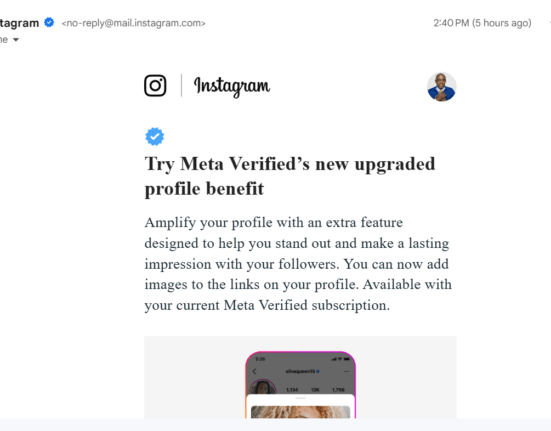I remember when I started my first business. I went to the county clerk’s office, filled out some paperwork and “voila” I was legal. My first business was a “doing business as” and I even had bank account – I was so happy! Years later, I’ve started 5 businesses and sold 3 of them.
Starting a business is pretty easy, it’s growing the business that’s hard. However, it’s important that you start the business right, so you can avoid any problems later on.
What Problem Are You Solving and for Whom?
The first step to starting your business is defining what problem you are solving and for whom.
To do this, you must identify who your target market is composed of – or who your potential customers are. Ask yourself what kind of people would benefit from using the products or services that you want to offer; then create an avatar that represents them – things like age, occupation, location and lifestyle preferences – so that you can design your offerings around their needs.
Next, determine how your offerings will solve their problems or meet their needs better than anything else on the market already. Answer questions like: How exactly will they use it? Who else can benefit from it? Will it save them time or money? Will it make their lives easier in some way? If so, explain how in as much detail as possible. This should help give shape to the product or service itself as well as inform any packaging decisions later on down the line.
Who Are Your Potential Customers (Customer Avatar)?
Once you’ve identified who your customers are, create an avatar representing them. Think about things like age range, occupation(s), location(s), lifestyle preferences and more so that you can design offerings around their needs specifically. Doing this also helps inform any marketing strategies later on such as targeting certain demographics with tailored ads or messages about products/services specifically designed for them – for example young adults living in New York City might get ads about helmet-mounted cameras while those living in rural North Dakota might get ads about farm implements because they have different primary needs and interests due to where they live and work respectively.
Psychographics not just Demographics
Once you’ve identified your potential customers, it’s important to look into their psychographics too – so not just demographics like age group, gender and location but also interests, knowledge, opinions and lifestyle preferences. A great example of this is luxury car makers who target consumers based on the fact that they want a certain status or lifestyle which the cars can give them. Knowing what motivates people in addition to knowing who they are can really help shape your products and services as well as any marketing strategies you decide to employ.
How Will You Reach These Customers?
Now that you know who your customers are, it’s time to think about how best to reach them. This could entail many different tactics such as email marketing campaigns (with newsletters offering tips & tricks regarding related topics), digital advertising campaigns (targeted at specific demographics via various platforms like Google Ads), SEO keyword optimization (to make sure content pages come up when people search related topics online) and more depending on budget & resources available at hand. Additionally utilizing social media platforms such as Instagram & Facebook for targeted campaigns & advertisements is highly effective given their broad reach across multiple demographics/locales worldwide today too!
Once again here comes down to budget & resources available at hand but there are still plenty of options regardless – think traditional methods like print media (newspapers & magazines) but don’t forget digital methods like email campaigns & social media management which offer great ROI depending on execution & frequency! Additionally utilizing online influencers to promote products has become immensely popular lately since these people already have an established audience within a certain niche topic area so they can help spread brand awareness quickly if used correctly here too!
Related: 3 Simple Marketing Tools Every Business Owner Must Invest In
Make Your Business Legal
Making sure your business is legally sound should always be a top priority before any other preparations begin – different countries & states may have varying regulations concerning small businesses so do research first! Things like registering trademarks/copyrighting logos etc., obtaining necessary licenses depending on industry type plus setting up an LLC/S Corp with appropriate tax structures should all be sorted out before anything else begins here too!
S Corp vs LLC
When setting up a corporation structure for your business entity there are two main routes available – limited liability company (LLC) being one option while S Corporation being another option more suited towards larger entities with multiple owners/investors involved possibly even shareholders etc . Ultimately though both these provide limited personal liability protection for owners which is important when dealing with legal issues surrounding operations etc.
The main difference between them lies within taxation structure; LLCs always pay taxes at individual owner level whereas S Corps tend not pay taxes due until profits pass through individual owners after corporate taxes have been paid already here which helps keep overall tax liabilities lower potentially! Therefore it’s important consider which type best suits needs based upon size/scale operations required going forward here too .
When you have decided on the entity, it is time to make your business legal. Start by registering with your state and obtaining a federal Employer Identification Number (EIN) from the IRS in order to open a bank account for your new business as well as pay taxes. You may also need other licenses and permits that are specific to the industry you’re operating in; check with relevant local authorities what these might be so you don’t miss out!
Bank Account
Opening up a bank account specifically dedicated towards business operations should be done once legal arrangements have been made properly otherwise any funds deposited could end up becoming part of personal assets if the entity isn’t established correctly beforehand leading to potentially complex financial implications further down the line.
Your cash flow is so important to a success business.
Business Operations and/Product Fulfillment
Whether service-based business or selling dependent upon fulfillment operations setup becomes an integral component in setting up a successful small business venture. Consideration of delivery costs, return policies, customer service strategies and processes need to be taken into account in order to operate efficiently and profitably.
Related: How to future proof your business
Jim Collins “The Flywheel”
The model established by Jim Collins known as the flywheel provides a helpful perspective on the process needed to build and maintain a successful small business. His model suggests rather than focusing on singular activity instead focus energy efforts toward inputting consistent effort over a period of time to build momentum through building blocks. Once momentum is established you can take advantage of the opportunity to convert resources into profit over time.
Simple Business Plan
You don’t need a detailed and long business plan to start your business, but you should have a plan. A business plan could include all aspects of running your company such as goals and objectives; operations; budgeting; marketing strategies; customer service plans; legal considerations; tax implications; etc. Having all these details written down helps keep you focused on what needs to be done in order for your small business to succeed over time. Additionally, there are many great books available that provide guidance on how best to write an effective and successful small business plan – so take advantage of these resources!
But the bottom line of your business plan should include an overview of who are your customers, where they are at, how will you reach them, what are their challenges and how you will solve them. A business plan should also include an overview of your projected finances – cash in and cash out.
Related: Don’t Start Small When Starting Your First Business







